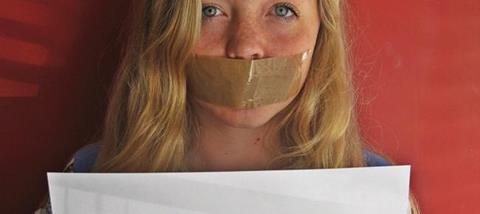
THE SENSIBLE GENERATION
Collected reports from the Department for Health have suggested that this generation of teenagers are remarkably more ‘sensible’ than their predecessors. Teenage pregnancy rates are at their lowest since the 1970s, with a simultaneous drop in abortion rates. The numbers of young people drinking, smoking and taking drugs has also shrunk massively since 2003. Nine per cent of young people had drunk in the last week, compared to 25 per cent ten years ago. Similarly, 16 per cent had taken drugs (down from 30 per cent) and three per cent described themselves as smokers (down from nine per cent). Some have attributed this to the rise of social media. Richard de Visser, a specialist in young people’s behaviours, told The Sunday Times: ‘More socialising can now happen at a distance. You can do social things that don’t involve going out in the park drinking or trying to get into the pub.’
TEENAGERS TOO WORRIED TO SEE GP
Research from the Teenage Cancer Trust has suggested that teenagers may be too worried, embarrassed or uncomfortable to talk to their doctor. The charity spoke to 1,000 13 to 24-year-olds and a third of them said they found it difficult to speak to doctors. The main reason given among those who found it difficult was embarrassment, while a difficulty expressing themselves or the concern that doctors would think they were stupid were also a major concern. Teenage Cancer Trust is worried that it could mean cancer cases could be missed. Nicky Pettitt, a cancer nurse, said: ‘Unfortunately a lot of the signs and symptoms in young people - for example tiredness, pain around a joint - are easily put down to something else like being on your computer too long, or falling down in the street because you were drunk. Young people know their bodies, so if you don’t feel happy with what the doctor is telling you, you need to have the confidence that something is wrong and pester the medical professionals.’
THE ESTHER COLLECTIVE

YOUNG PEOPLE WOULD GO TO CHURCH IF INVITED
A study by Soul Survivor church in Watford has found that 41 per cent of young people would go to church if invited. The research, by those on Soul Survivor’s Soul 61 gap year, also found that 31 per cent of young people would describe themselves as Christian. The research was carried out among 1,000 young people in Watford earlier this year.

LORRAINE KELLY ON THE ‘SCARY’ INFLUENCE THAT CELEBRITIES HAVE ON YOUNG PEOPLE’S SELF IMAGE
‘SLOPPY, LATE AND LACKADAISICAL’ YOUNG PEOPLE, APPARENTLY
LACKADAISICAL: Without interest, vigor, or determination; listless; lethargic
The head of Ofsted has blamed the high level of youth unemployment on young people’s attitude. Sir Michael Wilshaw described young people as having a ‘sloppy attitude to punctuality, as well as being ‘far too relaxed in terms of meeting deadlines’ and ‘lackadaisical in the way they present themselves.’ Wilshaw said, ‘If they dress inappropriately, speak inappropriately and have poor social skills, they are not going to get a job.’ With this being a news story, we won’t give our views on Wilshaw, but we humbly suggest that he meets some actual young people rather than relying on lazy stereotypes.
BOYS’ MENTAL HEALTH ISSUES RISE
A head teacher in Newcastle has warned that academic pressure has led to a rise in mental health issues among male pupils. Bernard Trafford’s comments followed new figures from Childline which showed a rise in calls from boys. Shaun Parker from Selfharm.co.uk said: ‘As a 28-year-old male who has struggled with image issues I’m not surprised to hear these numbers. It’s a big myth that mental health issues don’t affect lads as well as girls, but society still assumes that some issues - especially around self-harm - are all about the girls. But if we were to stop for a minute and really think about it we’d notice that anyone, regardless of their age, sex, background or location can struggle with mental health issues such as self-harm, eating disorders and depression. I was always told as a guy that you can’t cry or that you can’t show any sort of emotions as it would show weakness. I believe we’re entering into a time in society where we are slowly losing that stigma and that there’s a lot more blokes stepping up. We at Selfharm.co.uk offer a support group for young people who struggle with self-harm and this includes all male groups.’






































